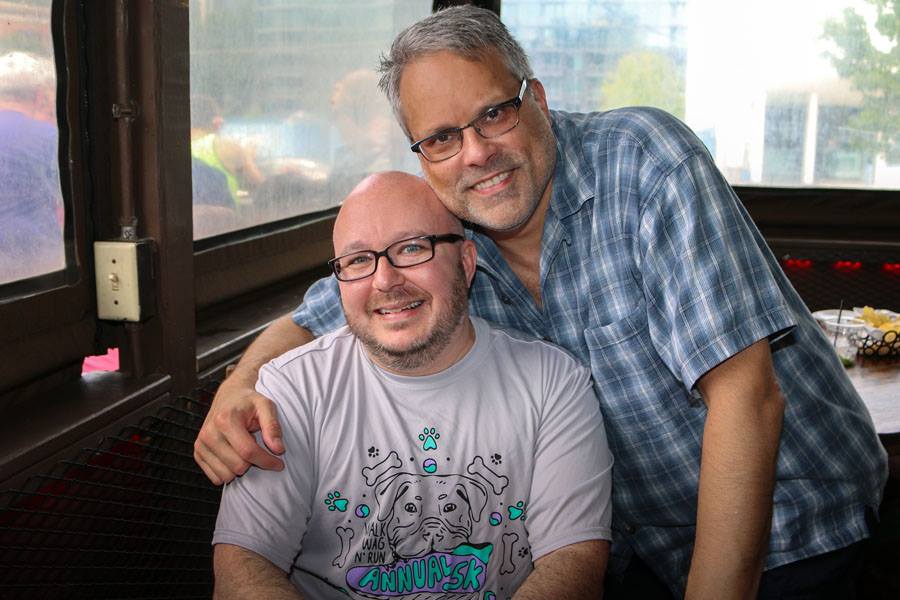A letter about the power of telling your personal story from Safe and Stable Homes Director Cole Thaler.
I was eight years old the first time I lied to a bank. The voice asking for my mother was distant in my ear. “Nations Bank?” I repeated, and from across the room, my mother waved her hands in broad horizontal strokes, mouthing No. “She’s not home,” I said into the receiver. Lying was that easy.

Over the months and years that followed, I no longer had to check with Mom. If a bank called, I knew to tell them that she wasn’t home – Dad wasn’t home either – and no, I didn’t know when they would be back. I became an expert at pretending to write down call-back numbers, reciting the number back by heart, and then forgetting it as soon as I hung up the phone. Later, I would tell Mom, “Nations Bank called again.” And she would answer with a harsh sound, a bitter laugh.
I thought they were sales calls. I thought banks called everyone’s house. I didn’t know what delinquent mortgage payments were.
Today, as an attorney working on behalf of low-income clients facing housing instability, there is something sanitized about my profession and my persona. When I meet with clients, I presume that I can access all kinds of personal information about them – but that they will not learn anything about me. I am neutral, unmarked, The Professional – not a human being with personality quirks, and certainly not a human being with a first-hand experience of poverty.
It’s an aspect of my history that I don’t even discuss with my colleagues. In fact, I don’t know that I’ve heard my coworkers in any white-collar job talk about their class backgrounds. We learn to leave those things unspoken – and never to talk about how our own histories of poverty or privilege affect the way we see our clients.

“Perhaps attorneys have more in common with our clients than we are used to looking for. And perhaps sharing those stories, forging those connections, is worth the risk of letting our professional masks drop.”
The calls from the bank continued sporadically throughout my adolescent and early teenage years. My father, a Columbia-educated architect who was determined to be his own boss, never achieved the success he worked for – and his struggles hung like a shroud over his head, and my mother’s head, and our entire house. Mom, brilliant but without a college degree, worked low-wage data entry jobs. The house fell into disrepair – peeling paint, worn linoleum, the grime of depression. The bank would call and call until my parents made a late payment, and then the phone would stop ringing for a little while.
How would our practices as attorneys representing poor clients be different if we recognized that we are one human being with a particular class background helping another human being with a particular class background? What if, when we met our clients for the first time, instead of signing a retainer, we started by comparing notes:
My house was foreclosed on. Was yours?
Were your lights ever cut off for nonpayment?
Do you remember your parents fighting about money?
Did you ever go to bed hungry?
Have you ever had to sleep in a shelter?
My parents held on to our house for as long as they could, and by the day in 1994 when the marshal knocked on the door to serve foreclosure papers, I was already a senior in high school. We moved into a small rental house one town over, and my high school allowed me to finish out the last three months of the school year even though I had moved out of district. By that point, the disruption to my education was minimal; I had already been accepted to college.
The timing for my clients’ children is often disastrously worse. They too have to move in the middle of the school year, but they are often much younger than I was, and have to change schools entirely, and then have to move again and change schools again. And the cycle repeats itself, each move diminishing that student’s chances of academic achievement and high school graduation and professional success. But, like them, I too had to pack up my bedroom instead of doing homework, had to walk a new and unfamiliar route to school, had to explain my abrupt displacement to bewildered friends.
If I share that story with my clients when I meet them for the first time, perhaps the representation would feel like a more authentic relationship, more honest and collaborative, more gratifying for both of us. Perhaps attorneys have more in common with our clients than we are used to looking for. And perhaps sharing those stories, forging those connections, is worth the risk of letting our professional masks drop.
Sincerely,

Want to read more moving letters from leadership to get the inside scoop of what makes AVLF tick? Check out others here.